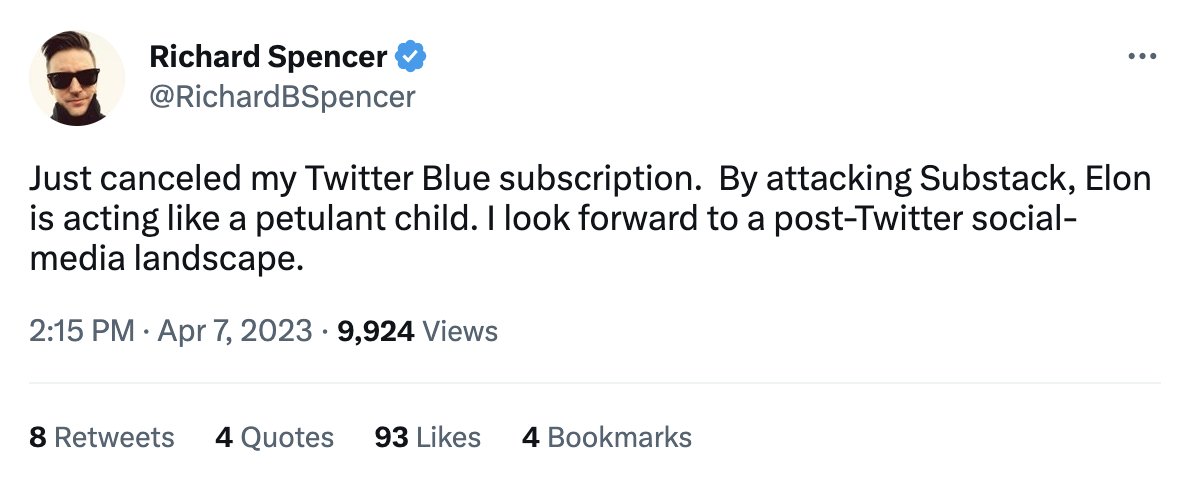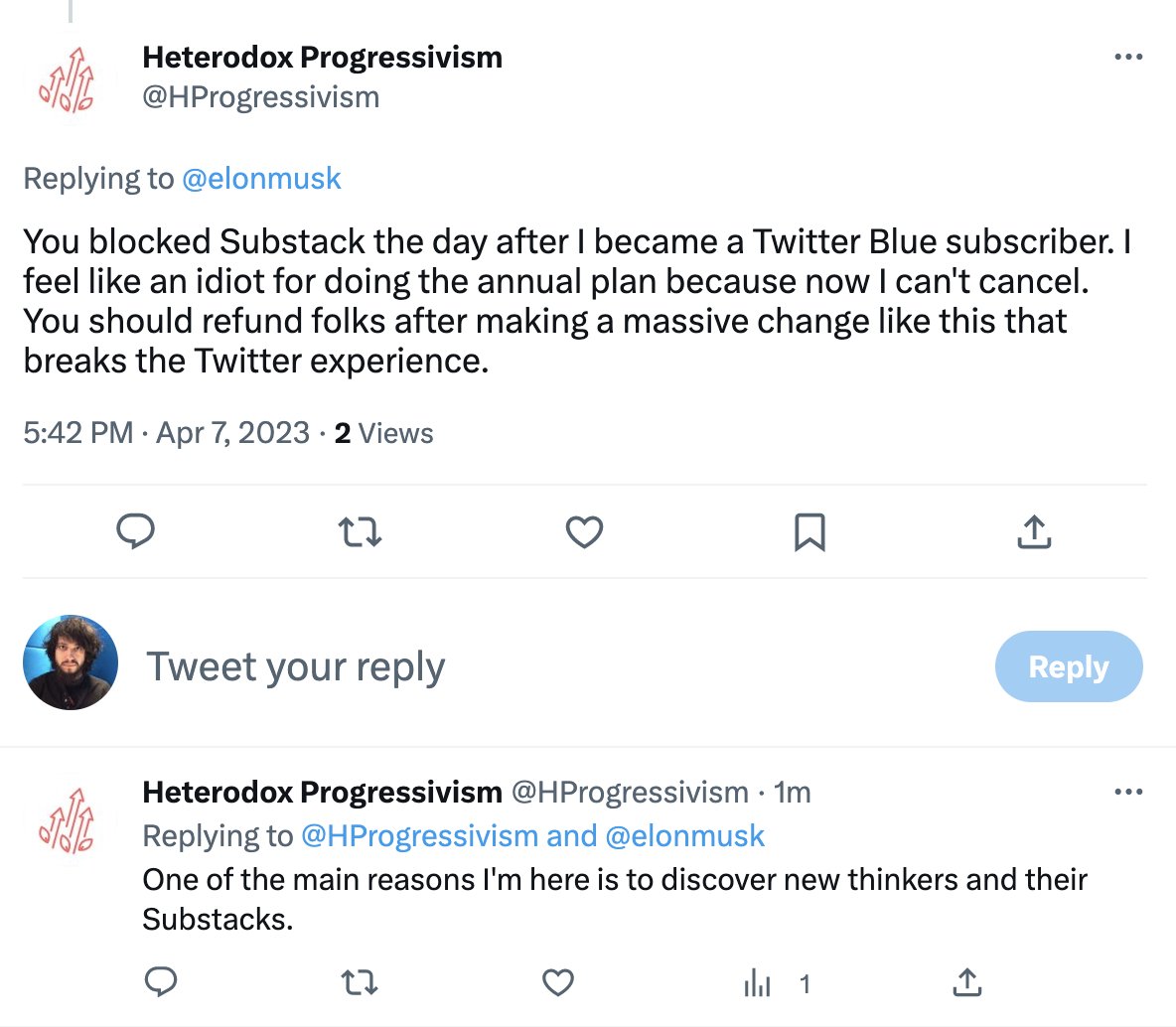Elon Musk says NPR's 'state-affiliated media' label might not have been accurate
April 6, 2023
8:58 PM ET
Bobby Allyn
Twitter CEO Elon Musk, pictured here in August 2022, placed a "state-affiliated media" label on NPR's Twitter account, leading to widespread criticism.
Carina Johansen/NTB/AFP via Getty Images
Twitter CEO Elon Musk said the platform's recent labeling of NPR as "state-affiliated media" might not have been accurate during a series of email exchanges that provided a glimpse into the billionaire's thought process on decisions that reverberate far beyond the social network.
Regardless, as of late Thursday, the designation remained.
On Wednesday, press freedom advocates and the network itself were taken aback to see that Twitter had placed NPR in the same category as government-aligned propaganda outlets in China and Russia — despite the network's federal support, in the form of competitive grants,
accounting for about 1% of its annual operating budget.
In one email exchange, Musk appeared to be unclear about the difference between public media and state-controlled media when he decided to affix a state-affiliated media label on NPR's account.

"Well, then we should fix it," Musk wrote in an email on Wednesday to this reporter, when told that government support represents about 1% of NPR's finances.
Musk added: "What's the breakdown of NPR annual funding?"
In response, NPR provided Musk publicly available documentation of the network's finances showing that nearly 40% of its funding comes from corporate sponsorships and 31% from fees for programming paid by local public radio stations.
NPR also covers the news free of any government influence — something that should mean it does not receive state-affiliated labeling, according to
Twitter's own rules.
Musk, in another email, compared NPR to media outlets controlled by governments of other countries, while also admitting "it sounds like" that might not be the case.
"The operating principle at new Twitter is simply fair and equal treatment, so if we label non-US accounts as govt, then we should do the same for US, but it sounds like that might not be accurate here," he wrote.
It was a turnaround from a tweet he sent hours earlier that the state-affiliated label for NPR "seems accurate."
Amid the conflicting remarks, in a Thursday email, Musk restated his interest in applying "any given rule fairly to all," and he said the label for NPR's account is still being evaluated.
Musk's comments to NPR over the past two days only further clouded what was already a confusing situation.
But it's not the first time chaos was the norm on the social media site.
Since Musk took over the platform in October, Twitter has at times taken a hostile stance toward the national press. Musk's row with NPR is just the latest instance of the Twitter CEO's increasingly confrontational stance toward the mainstream media, which often covers Musk and his companies critically.
Twitter stripped the New York Times of its verified blue check. And in December, Musk
suspended the accounts of several high-profile journalists who shared tweets or reported on an account that tracked the comings and going of his private jet.
When reporters reach out for official comment from the company on news stories, Twitter's communications department replies with a poop emoji.
But the label given to NPR was no laughing matter to free press watchers who viewed it as "a dangerous move that could further undermine public confidence in reliable news sources," the literary organization PEN America said in a statement.
John Lansing, NPR's president and chief executive, said in a statement that he was "disturbed" that Twitter has flagged the network as a state-affiliated news organization. "It is unacceptable for Twitter to label us this way," Lansing said in a statement.
Label was intended to help users understand what they're seeing
Despite professing an interest in fairness, Musk appears to have run afoul of Twitter's own guidelines in giving NPR a label that can harm its credibility.
"State-affiliated media" are outlets where the state exercises control over editorial content directly through funding, or indirectly through political pressure, according to the guidelines.
A former Twitter executive who helped develop the platform's state-affiliation labels said that editorial independence had long been the deciding factor in whether to issue the designation.
The People's Daily in China, and Sputnik and RT in Russia, for instance, received the labels, but outlets with editorial autonomy that received some government funding did not.
"In the end, [we] felt that the most fair and balanced way to implement labels was to call out state connections that had a demonstrated track record of influencing content of news reporting," the former Twitter executive said.
That meant that NPR, the government-funded outlet Voice of America, "and even Al Jazeera didn't qualify under our designation," the former employee said.
The point of the labels, the former executive said, was to help users understand what they're seeing on the platform.
"That matters a lot when you see an outlet like Xinhua, have never heard of it, and it looks like a totally legit news source," the former executive said about the state news agency that routinely pushes the official line of China's President Xi Jinping.
Besides potentially besmirching the reputation of NPR, the label influences the reach of the network's tweets.
Under Twitter's rules, and according to the former executive, accounts that have been given the state-affiliated mark are not recommended or amplified on the platform — a process known as "downranking" among social media insiders.
For example, if someone who did not already follow Russian publications like RT or Sputnik searched for the government-backed publications on Twitter, the publications were not suggested, according to a second former Twitter employee who spoke on condition of anonymity for fear of retribution. Accounts deemed affiliated with government, the employee said, were not allowed to advertise on Twitter. A list of what accounts received the label was never publicly revealed.
The policies were in place as a way of ensuring government propaganda did not run amuck on the platform. Now that Musk owns Twitter, it is unclear if the same platform and advertising restrictions on state-affiliated media are still in place.
NPR has not sent a tweet from its official account since Twitter affixed the label.
Network spokeswoman Isabel Lara said since all of the news organization's tweets now carry a "false disclaimer," the organization has decided to halt tweets until the label is removed.
Asked if Twitter not taking away the label meant that the company was standing by the decision, Musk punted.
"We're digging into it," he wrote.
NPR's Dara Kerr contributed to this report.




 Our Deutsche Brüder preparing to fine Elon for a shyt Emoji.
Our Deutsche Brüder preparing to fine Elon for a shyt Emoji. 
/cloudfront-us-east-2.images.arcpublishing.com/reuters/IRTFI2MOHFO33EKDHQSGWAW5GU.jpg)




